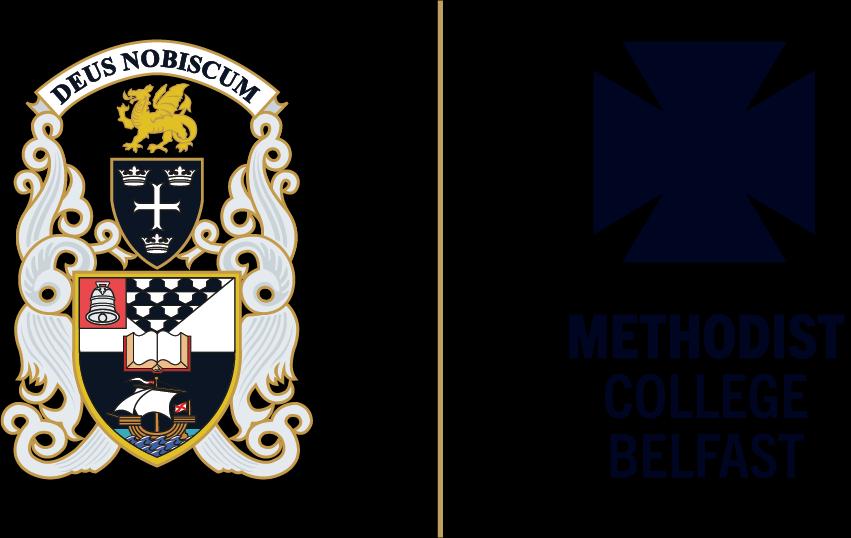

UCAS Predicted Grades
Introduction
UCAS predicted grades are a key part of the application process for higher education, school leaver schemes and apprenticeships. Methodist College Belfast will provide predicted grades for all students to support such applications, so that universities and/or employers are best able to assess a student’s potential and suitability for their chosen course or role. This policy outlines how the College determines such predicted grades.
Process for Predicted Grades
The College adopts an optimistic, consistent and evidence-led approach across the student body when determining predicted grades. In coming to an honest professional judgement, departments will use:
• AS results (where AS examinations have been taken) For the vast majority of students, their AS examination result will automatically become their predicted grade.
• UMS scores for consideration of whether a student sits close to a higher grade boundary (close would normally be within 5 UMS marks of a higher grade boundary).
• UMS scores for predicting the A* grade (for prediction of the A* grade, pupils should be achieving 90%+ UMS at AS).
• UMS scores for predicting performance in A level Further Mathematics. As Further Mathematics Specification is a separate subject, Mathematics grades attained at AS cannot be used for Further Mathematics predictions. However, A level Mathematics UMS scores will form the basis of Further Mathematics Predicted Grades.
• Internal Assessment results for final L6 examinations (linear subjects)
• Evidence of commitment and work ethic in L6, where the AS result is demonstrably different to performance consistently seen in assessment throughout L6th.
• The College will not predict below a D grade.
In summary, the College’s process is evidence-based and realistic utilising tangible data
In line with UCAS guidance, departments will not base predicted grades on what students require to apply for a particular course or university or on the basis of their promise to work harder to achieve it. Inflated predicted grades lead to a poor correlation between predictions and outcomes, undermining the integrity of our predictions with many universities. Re-sit examinations cannot be taken into account at the time of making predicted grades for application to university.
When are predicted grades finalised?
Predicted grades are finalised at the start of the U6th year, following AS results in August. Pupils will be informed of their predicted grades in September, so that they can make an informed decision about suitable courses.
Early Applicants
Those applying for Oxbridge, Medicine, Dentistry or Veterinary Medicine have an earlier deadline for UCAS application, with forms submitted internally in September and sent to UCAS early in October. The early applicant group are applying to some of the most competitive courses in the UK and therefore MUST have strong AS performance to support a competitive application. Predicted grades will be based on their AS performance where available as there will not be sufficient time to re-assess work in their Upper 6th year.
Standard Applicants
If a standard applicant is unhappy with their AS performance/predicted grade, they will have one opportunity to improve this grade based in each subject on one substantive assessment to take place in the first term of their A2 year. Pupils apply for this additional assessment opportunity here by the end of September of their A2 year; late applications will not be accepted. Each subject will set out the specific details of what this additional assessment will involve/when it will take place. Departments will use the results of this additional assessment to either move a predicted grade up or to confirm the original predicted grade; predicted grades will not be moved down on the basis of this assessment.
Special Circumstances
If a pupil experienced Special Circumstances at the time of their assessment that may have impacted on performance, in most cases, they will already have applied for Special Consideration and therefore these circumstances will have been taken into account by the Examination Body at AS grading. Where a pupil did not apply for Special Consideration, they should take the additional assessment opportunity if they are a standard applicant. Where they are an early applicant and special consideration was not previously applied for, they should complete this form and provide the documentary evidence required for the special circumstances. This will be reviewed by the Curriculum Vice Principal, who will in the first instance, decide whether the application meets the threshold for Special Consideration. For applications that meet the required threshold, the JCQ guidance for Special Consideration will be applied to the AS UMS scores – this may result in an upward change or no change in
the predicted grade. Please note, the first section of the UCAS school reference is for detailing any special circumstances that may have/impact the student – therefore, universities will be made aware of this.
Past Pupils
Some students choose to re-apply through the UCAS system the year after they have left the College. Our policy is to use the predictions which were set by teachers during the student’s U6th year in the College. If a student is attempting to improve their A level grades by sitting qualifications independently in an FE institution, the College must receive an email confirming an improved predicted grade from a subject specialist at the institution to make any changes.

